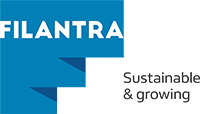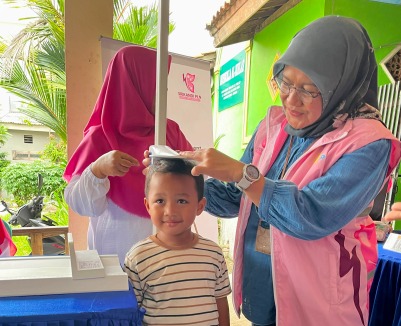PARTNER: PT PLN (Persero) West Java Transmission Unit
INDUSTRY: Energy and Electricity
OBJECTIVE: Strengthening the role of Posyandu cadres to improve maternal and child health in Tlajung Udik Village, Gunung Putri Subdistrict, Bogor Regency
Challenges
Community health services at the village level still face various challenges. In Tlajung Udik Village, several toddlers were identified with poor nutritional status, placing them at risk of stunting. Pregnant women also experienced nutritional deficiencies, which could lead to anemia and pregnancy complications.
On the other hand, Posyandu, which plays a vital role as a community health service center, faced limited facilities and infrastructure. This condition hampered the provision of optimal services. Posyandu cadres, mostly women volunteers, also needed support to enhance their capacity in assisting the community.
Solutions
To address these challenges, PT PLN (Persero) West Java Transmission Unit, in collaboration with Filantra, initiated the Srikandi Movement Program. The program ran from December 2024 to February 2025, focusing on two main interventions:
- Supplementary Feeding (PMT)
- Conducted regularly at five Posyandu: Cempaka, Bunga Pandan, Anyelir, Lembayung, and Lavender.
- Beneficiaries included 640 toddlers and 26 pregnant women.
- Supplementary foods provided were mung bean porridge, eggs, high-protein biscuits, maternal milk, and fruits.
- Support for Posyandu Facilities
- Provision of 3 patient examination beds and 2 storage cabinets to improve health services.
- The aid was officially handed over through the Srikandi Movement Ceremony held on November 14, 2024, attended by the Bogor District Health Office, Subdistrict Head, Village Head, Posyandu cadres, and local residents
Impacts
The program produced tangible outcomes for the community:
- 69% of toddlers showed weight improvement during the program implementation.
- Pregnant women experienced better nutritional intake, reducing risks of anemia and complications.
- Posyandu services became more effective with the addition of new equipment and facilities.
- The capacity and role of women cadres were strengthened, enabling them to serve as community health champions
Relevance to the SDGs
The Srikandi Movement Program aligns with and contributes to the achievement of the 2030 Sustainable Development Goals (SDGs):
- SDG 2: Zero Hunger: addressing malnutrition in toddlers and pregnant women.
- SDG 3: Good Health and Well-Being: improving maternal and child health outcomes and reducing stunting risk.
- SDG 5: Gender Equality: empowering women cadres to lead and support community health initiatives

